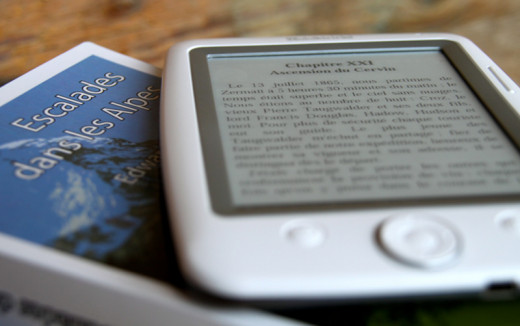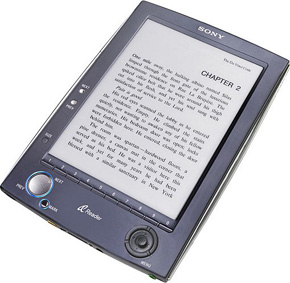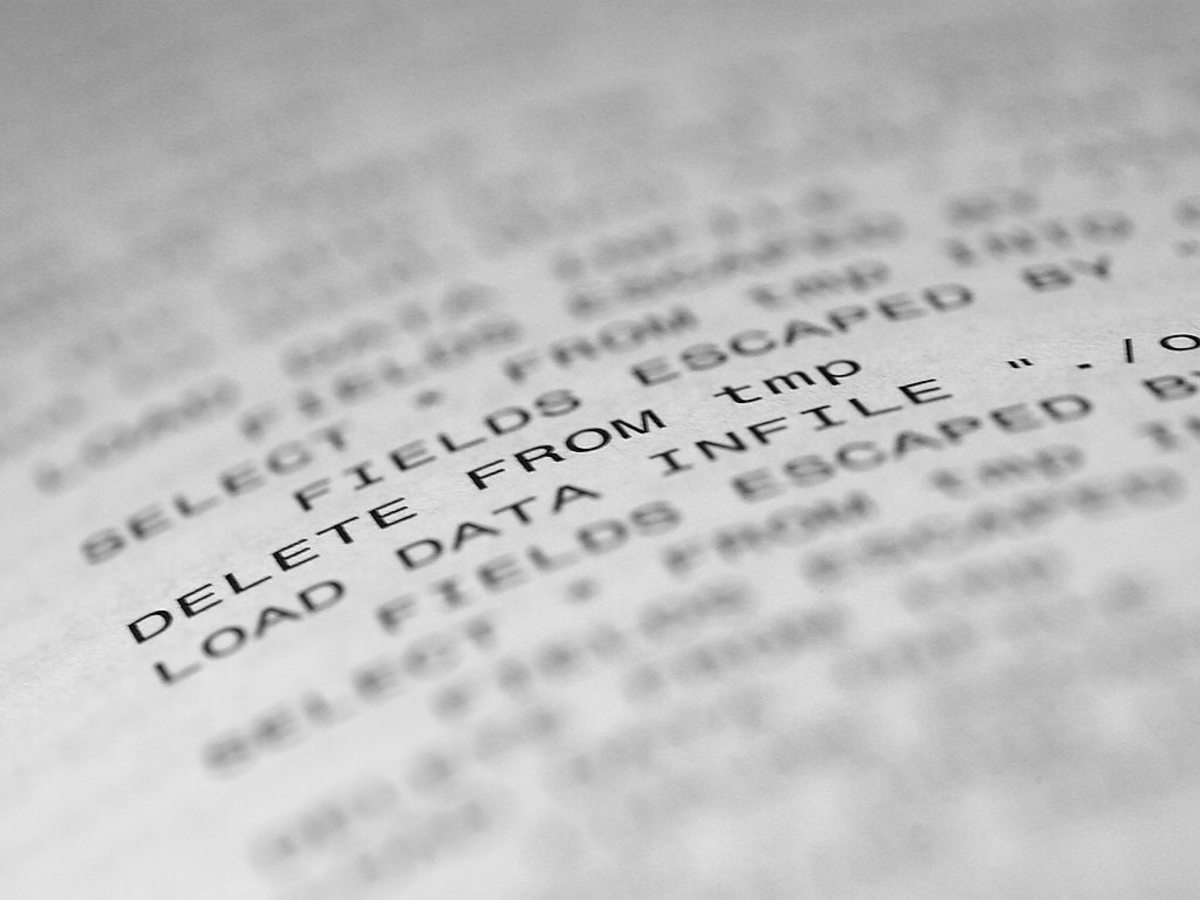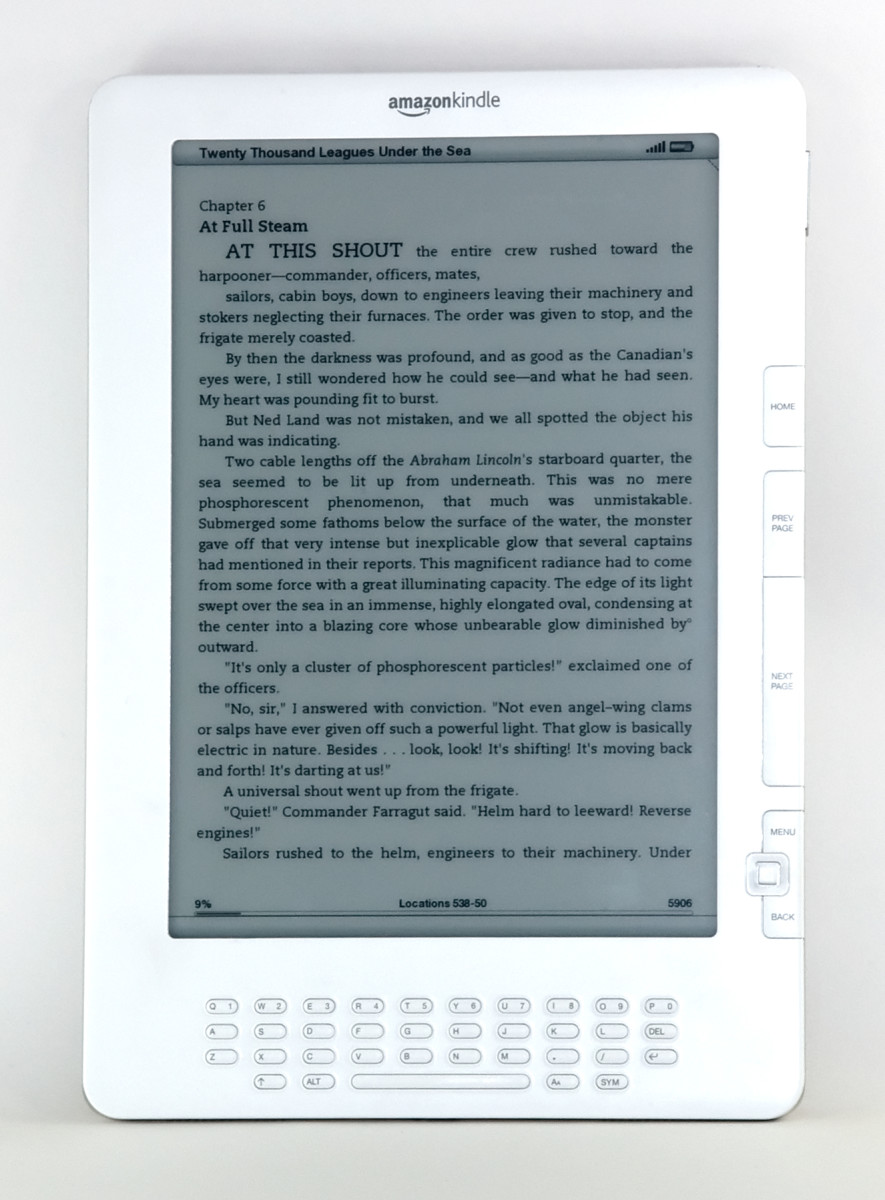E-Readers Versus Books: Which is Better?


Yes, I know you're sick of hearing the arguments about which is better, the so called "dead tree" books or the new digitized ones. It's a big deal in the book realm, where we find love standing upon a bookshelf and do whatever it takes to protect those precious pieces of knowledge. I personally own an e-reader, more specifically the Kindle Fire, as well as a ridiculous amount of books that only recently found a place that almost houses them all (I need more bookshelves!).
So, yes, I feel your pain when you see yet another article fighting for or against those damned e-readers. At the same time, though, I can't help but feel just as ready to raise my own flag in this battle and call for a time out. Both sides have great arguments and both types of literature have their pros and cons. For those lost in the battleground and unsure about whether or not they should feel a little dirty for having that Nook or Kindle, then perhaps I can help you a bit by laying out the arguments for both sides as I understand them.
For More on What Defines a Book
- What Books are Made of: Book Art and Electronics
Books not only have a complicated and long history, but they also continue to grow with time. They aren't just for bookworms and classrooms, they're art and a new way of expression sometimes without words.

What is a book anyway?
For those who have been following me, you already know that I have written a hub on what books are made of (the link is provided to the right). Seems like an easy enough question if asked the question "what is a book" but you'd be surprised what kinds of answers you're likely to get.
The obvious one is your classic old hardcover (or paperback) book with pages and pages of text. You can love them with abuse, by writing all over each leaf and all out ruining the cover with weather, coffee stains, or whatever else it runs into or you can treat it like a holy relic and maintain that brand new look for decades. The very first book I got was The Hobbit by J.R.R. Tolkien from my dad in fifth grade. That copy is barely held together with a rubber band but every time I look at it it's as precious as a newborn child. The newer editions that I later bought as I realized I didn't want the book to eventually disintegrate with too much use are all much cleaner and crisper. The love and care that's involved in these seemingly simple books are what they're all about and just about any bibliomaniac would agree with that.
However, there's been a new edition to the book realm that's brought up this question. Is an e-reader a book? Many of those who recognize the love and care involved in either the courtly or carnal kinds of care for books (courtly being the ones who view them as relics and carnal being the ones who will tear them to shreds with so much use) say that digital books are not real books at all. You can't touch them, you can't smell them, and you can't even ruin them if you really want to, unless you don't mind going without a means to read any books at all for the amount of time it takes you to buy a new e-reader.
Others say that e-readers are books but that they are just a different kind of book. Basically, you can't do anything like just hand over your e-reader for someone to borrow like you can with a book and you can't display it like shelves of novels or even touch it but you can still read it. As long as you can get the text to you and sit there and read it, it's the same as a regular old book, just a different form.
Government Control
Around the time Amazon first released its Kindle e-readers, those who had bought Animal Farm one day looked and realized their copy had suddenly disappeared from their digital library. Little did they immediately know that Amazon had had a copyright issue that demanded that they recall all of Orwell's infamous novels.
So what?
Well, imagine that you had a little library in your home and you just purchased a brand new copy of Animal Farm for your collection. You set it up amidst the classics, stand back, and admire it before you head off to work. Hours later you return and find that it's missing. Something went wrong so the big company had to take it back and no, they didn't have to ask you first.
I'm sure just thinking about it makes you shudder. Someone invading your library and taking your property and there's nothing you can do.
There are those out there who believe that the biggest issue with e-readers is the control that higher powers, whether it's big companies or, more importantly, the government, have over the digitized realm of novels. No longer is everything kept in good old solid print. If it is possible for them to take a book out of your e-book's library without your consent or maybe even without you noticing, what would stop them from doing it again?
If a book is released that the government wishes to be banned, it could theoretically be possible for them to just take the book and eliminate it forever with just a few keystrokes. Maybe they just didn't like a chapter or two so they just edit those out to censor the public.
Advocates for this argument believe that in order to keep the literature world absolutely safe, they must be kept in the same form that has guaranteed their safety from censorship before. No matter how many books get banned, there is always a copy that survives somewhere.
Do you prefer books or e-readers?
Which do you prefer, books or e-readers?
The Other Side of This Fight
On the other hand, those who believe e-readers are better than books say that these theories are ridiculous. I would agree but it does make you think about the power of "dead tree" books over their electronic descendants.
They say that the power of the internet and the digital world outdoes any attempt at censorship and government control. With millions of copies out in cyberspace, there's no way they would only be stored in e-readers. Unless all computers and other devices were also eradicated, the hypothetical book that is erased could not be completely destroyed forever. Someone would have the original somewhere that could prove its existence and prevent editing or elimination.
Of course their next major argument is for environmental reasons. Obviously, the e-reader does not use any paper, whereas the good old fashioned book does. This is a plus when it comes to saving the world as well as the lasting properties of the book. In digital form, it can last forever, whereas paper fades and crumbles to dust over time.
Which do you choose?
I personally bought an e-reader for convenience and practical purposes. Yes, I love that new book smell and I love to display them. However, lugging them to classes everyday as a literature major was a pain and I ran out of shelf space as the years went on. Keeping them in one device and one place is easier to manage and helps keep my collection in check.
If you're considering buying an e-reader but feel like it might be a traitorous act then perhaps it's because you're too caught up in these big arguments associated with it and not with what's best for you. Take a step back from the paranoid government control theories and environmental issues and ask yourself what you believe really qualifies for a book and, if you're open to it, if an e-reader is right for you.
© 2012 Lisa








